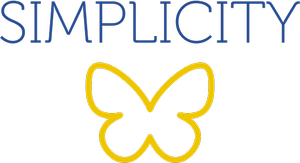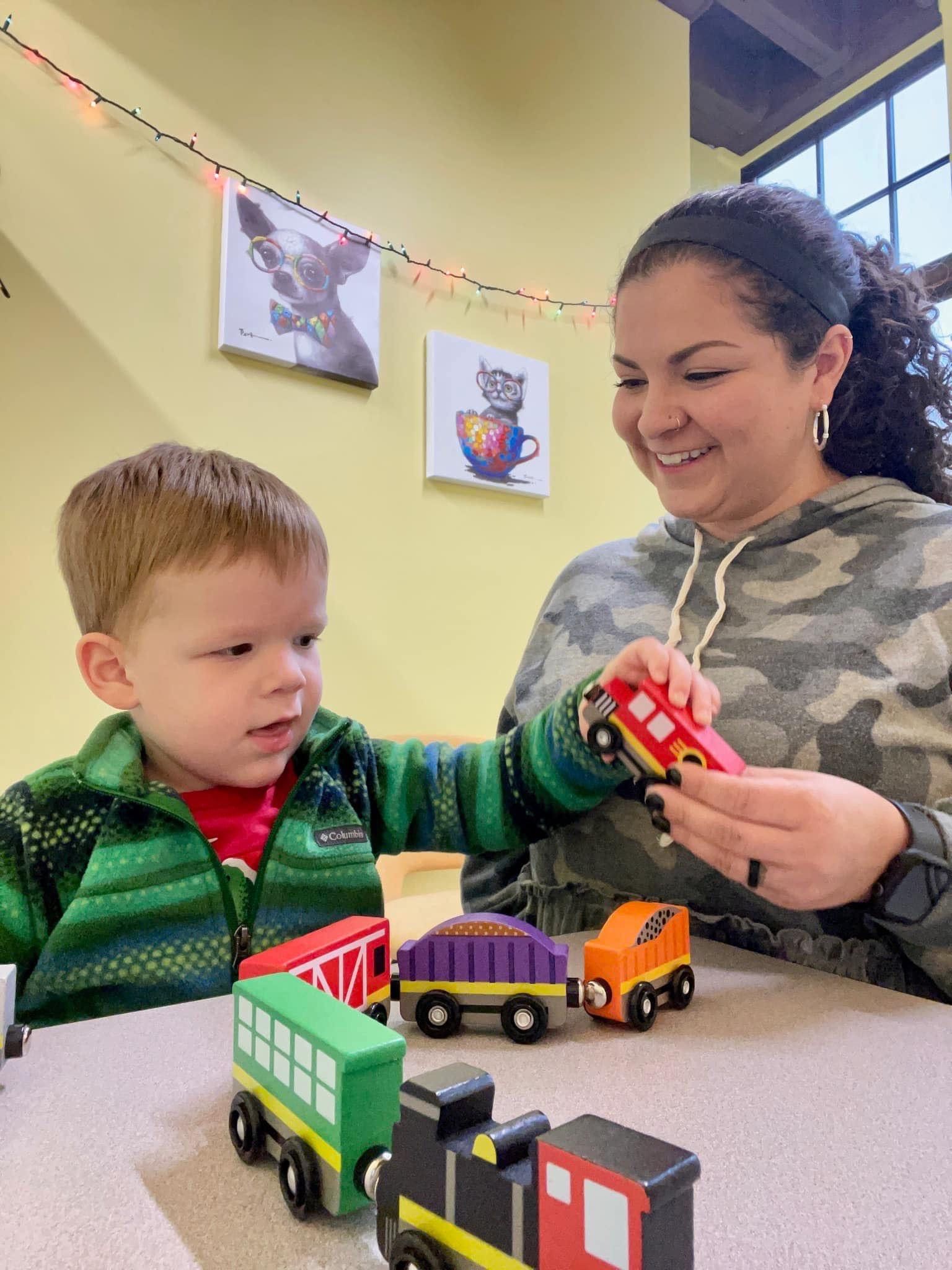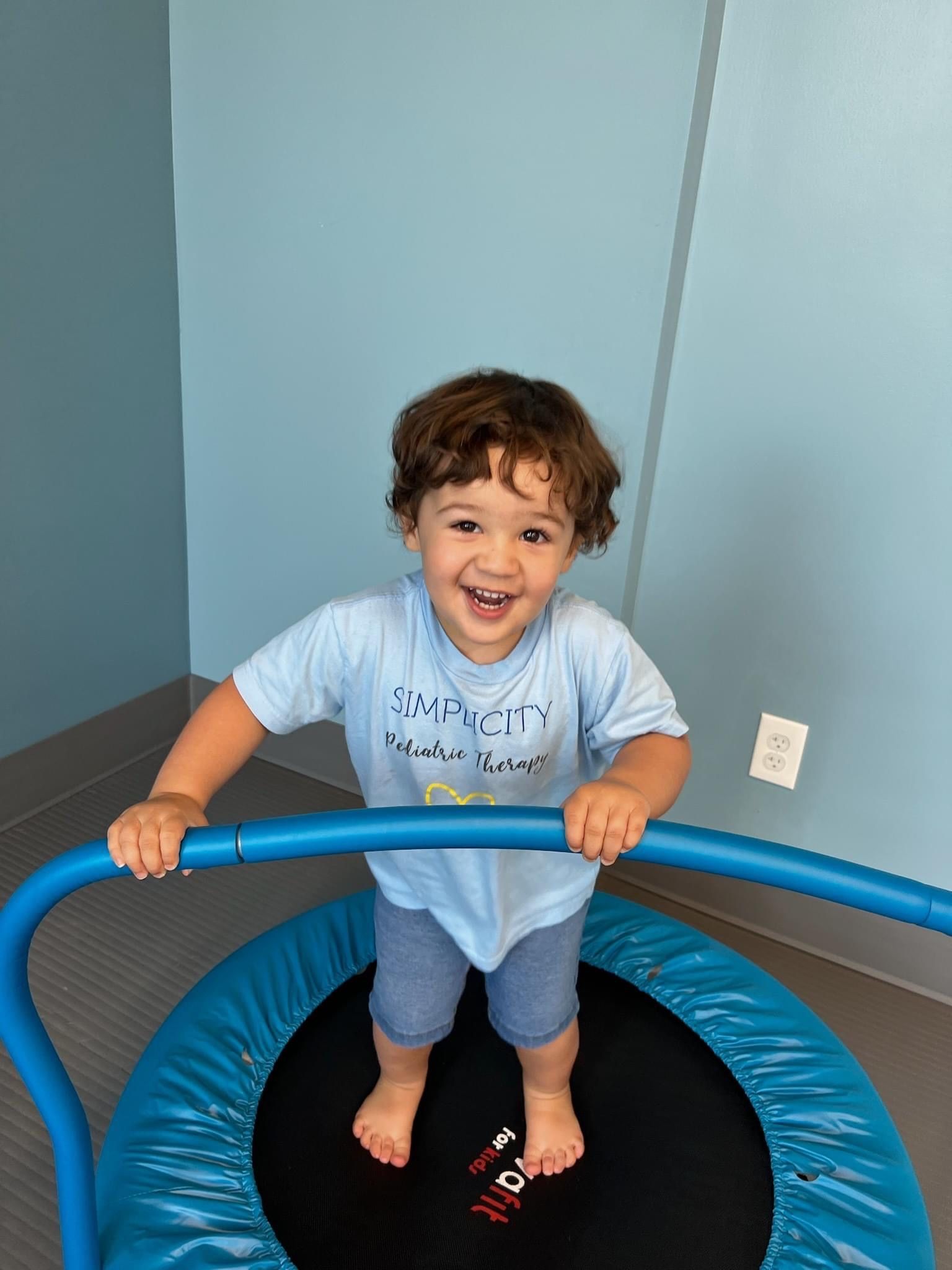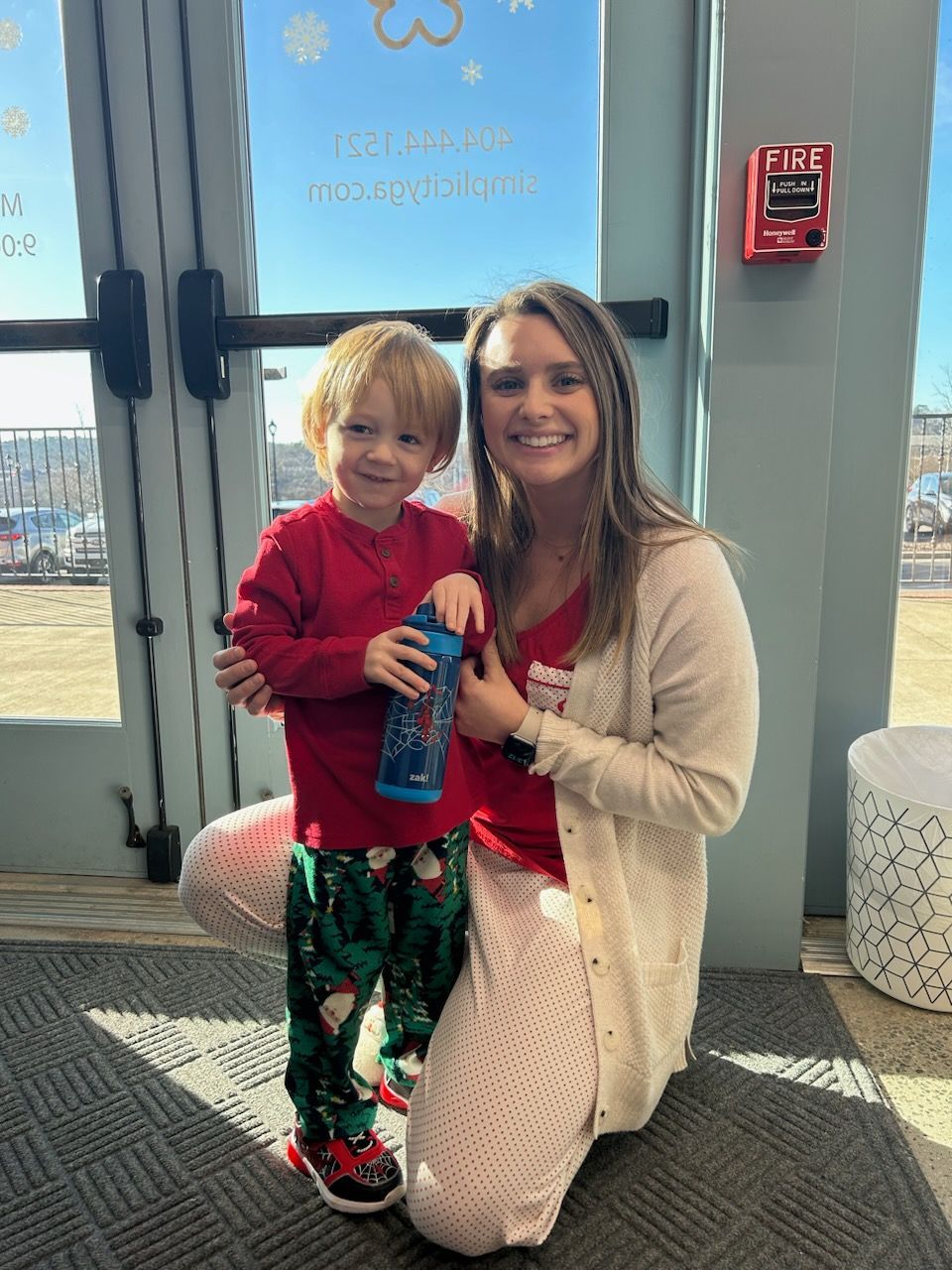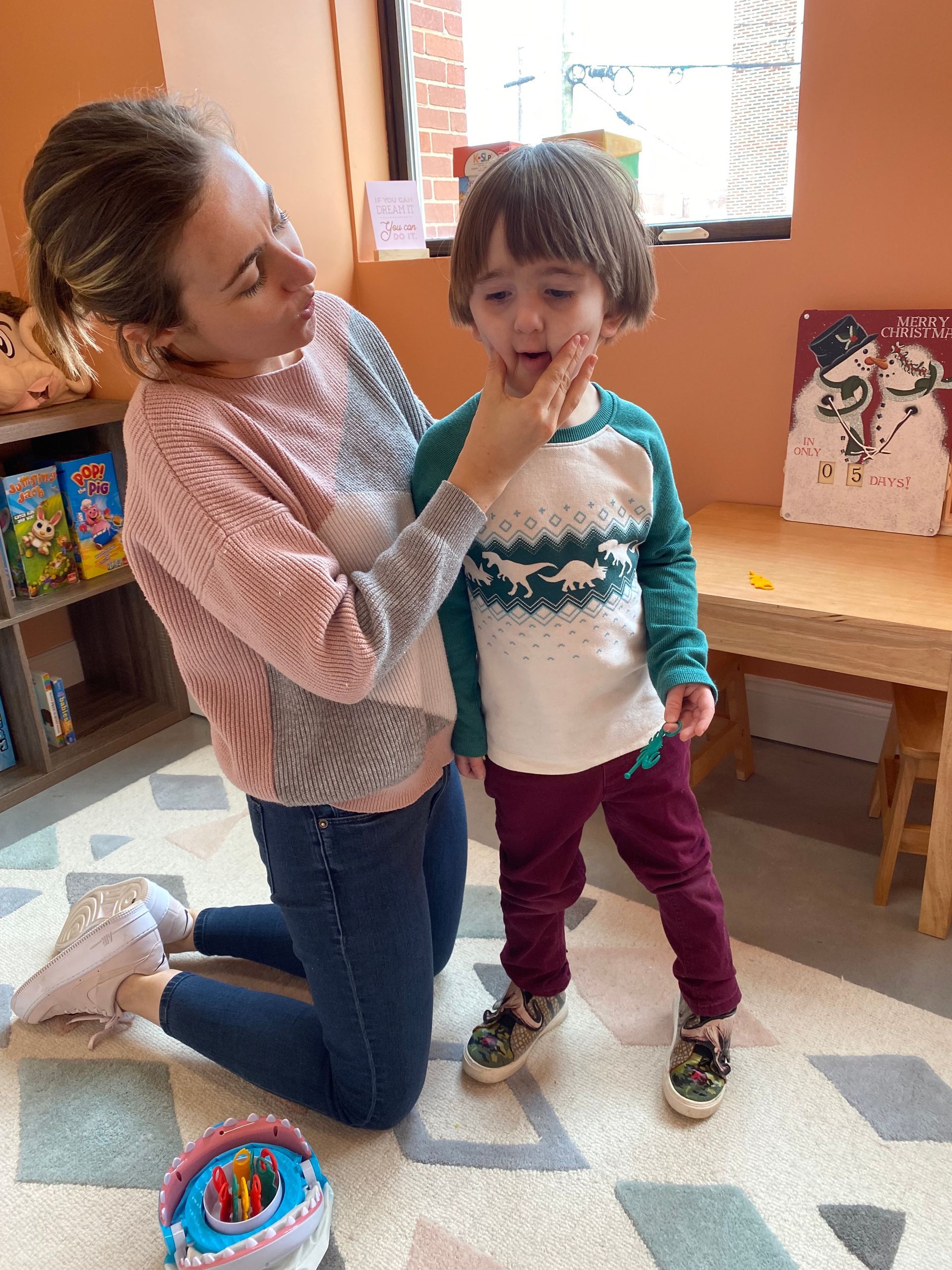Speech Therapy
Communication (n.) The successful conveying or sharing of ideas and feelings.
-
Childhood Apraxia of speech
Childhood Apraxia of Speech is a motor planning disorder in which the muscles of the face (lips, tongue, jaw) are not in coordination with the brain, making it extremely difficult for a person to speak. If your child is attempting to speak, but is very difficult to understand or attempting to speak, but no coordinated sounds or movements are happening, it could be a sign of Childhood Apraxia of Speech.
-
Social Language Disorders
Our skilled speech pathologists will work with your child one on one or in a small group, depending on your child's needs. Social skills focus on the child's ability to stay on topic, take perspective of others, keep a conversation going, and other pragmatic skills.
-
Sensory Feeding Disorder
Is your child a picky eater? Is it impacting his or her quality of life or weight? Picky eating habits are developed from a young age and may have a behavioral basis, however, some children are aversive to certain textures, temperatures, or size of foods and choose to avoid them. These children need specialized treatment in order to learn how to accept more types of food into their diets.
-
Language Disorders
Receptive and expressive language skills includes what information we are able to understand and what information we are able to communicate to others. If your child has difficulty following directions, answering basic questions, labeling, spontaneously commenting, or difficulty with syntax, it is time to seek advice from a Speech Language Pathologist.
-
Augmentative Alternative Communication (AAC)
AAC is a viable form of communication that takes the pressure off the child who may be preverbal or minimally verbal. For these children, speaking verbally is not the easiest mode of communicating with others, but rather using a communication system as a way to express themselves. AAC has also been proven to enhance verbal skills in children. Therapy includes programming a device, teaching operational skills, and strategies on how to navigate a device effectively.
-
Articulation and Phonological Disorders
Some children are difficult to understand when they are speaking due to speech sound disorders. This may indicate either a learned pattern where the child is attempting to imitate the adult and not succeeding (phonological) or the child is consistently using the wrong placement of his or her articulators to make sounds. If your child’s speech is hard to understand, a Speech Language Pathologist can find the cause and treat the disorder.
-
Fluency/Stuttering
Signs of childhood stuttering may be frequent repetitions of sounds or whole words (b-b-ball), prolongations (mmmmore), blocks (e- lephant). The child will often avoid trigger words or avoid speaking altogether. A speech language pathologist will evaluate the frequeny, duration and physical components of stuttering to determine your child's stuttering severity and if treatment may be waranted.
-
Early Intervention
Between the ages of 1-3 years are critical points in a child’s life to be meeting communication milestones. If your child is behind in any of their communication milestones, it is time to have a professional intervene before the child falls behind. Early intervention is proven to help children build skills during this critical period.
-
Pediatric Dysphagia (Swallowing Disorder)
Does your child choke on food, have trouble chewing, swallowing or accepting specific textures? A speech language pathologist can help.

